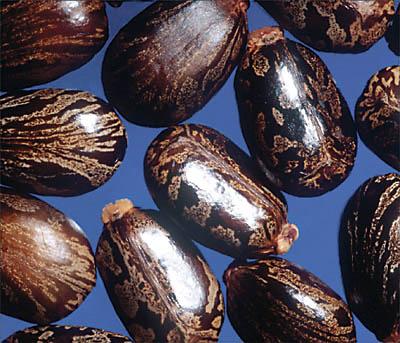All us informed news-savvy Hoyas hold ricin attacks in recent memory. And if there’s anything you want to read about during finals week, it’s poison. But what exactly is ricin and how is it dangerous?
Ricin is a protein with two chains that can be derived from castor beans, the seeds of the castor oil plant (Ricinus communis). Eating just eight of these beans could prove lethal to an adult, making it the world’s most poisonous plant according to the Guinness Book of World Records. However, it would take only 2,000 milligrams of this protein, when purified, to kill an adult.

Ricin targets the human ribosomes (a.k.a. the protein-makers of the cells). The first protein chain breaks open the ribosomal wall while the second enters it and inhibits protein synthesis.
Needless to say, it’s hard for a human body to live/operate without protein (that’s why you vegetarians/vegans need to be careful!). In order for the ricin to take effect, it has to enter the bloodstream through injection, ingestion or (if the ricin is sufficiently powdery) inhalation.
In the context of recent events, Dan Brown, a nutritional toxicologist at Cornell, says that ricin placed in an envelope, “isn’t much of a weapon.” Anthrax, a bacteria, is extremely dangerous when inhaled, but ricin, a plant-based compound, must be inhaled directly and for a long span of time to put one’s health at risk. He says that letter openers would have had to place their faces directly into the envelopes to experience negative effects. Ingestion is the real risk.
So, Hoyas, as long as you avoid eating random white powdery substances or consuming castor beans that come in them ail, you’re fine. No promises about Leo’s beans, though …
Source: scientificamerican.com
Photo: jamanetwork.com
Simply Science is a reoccurring post that aims to make recent scientific discoveries accessible and applicable to the Georgetown student.









